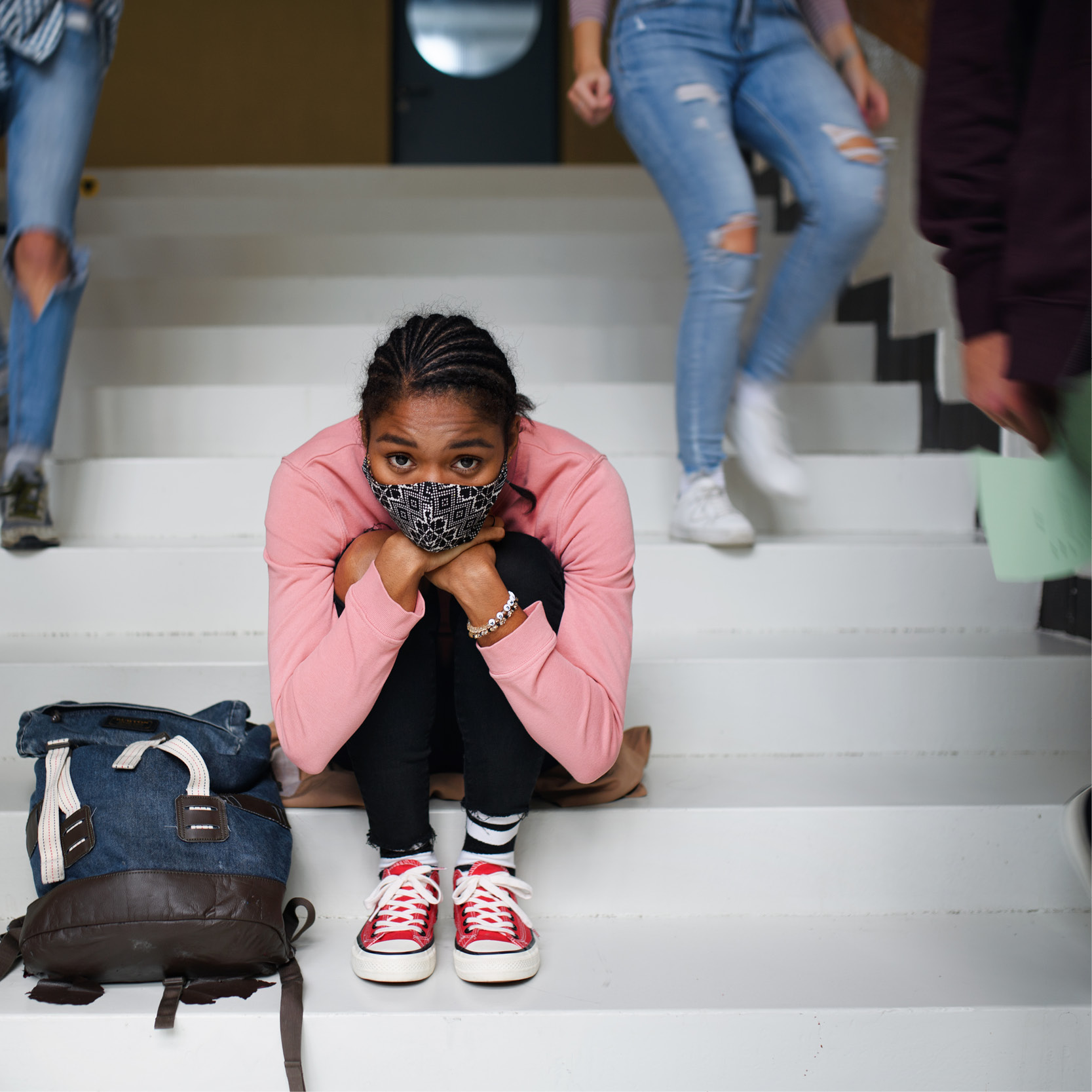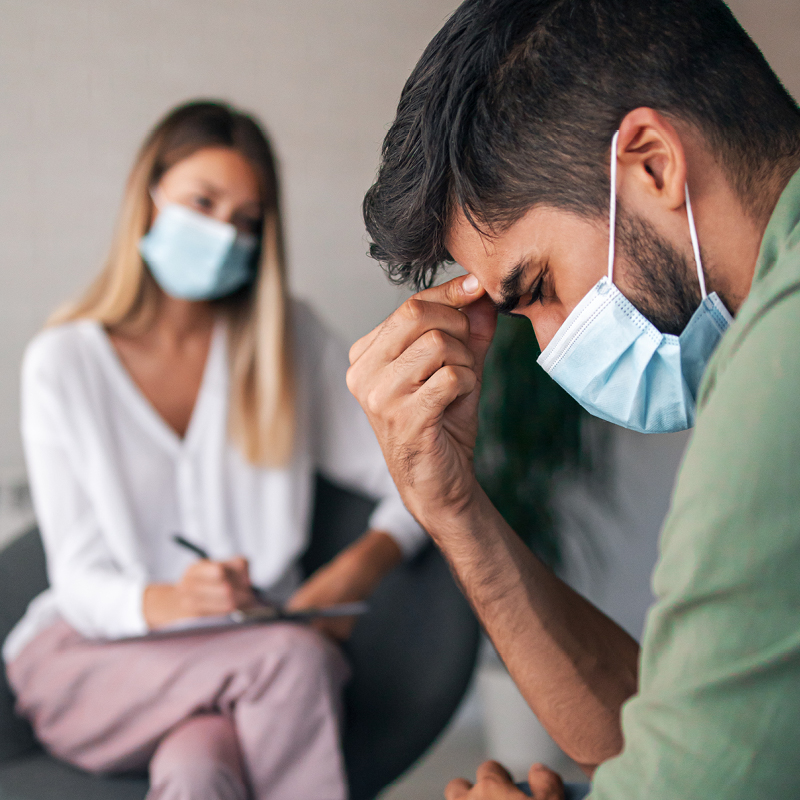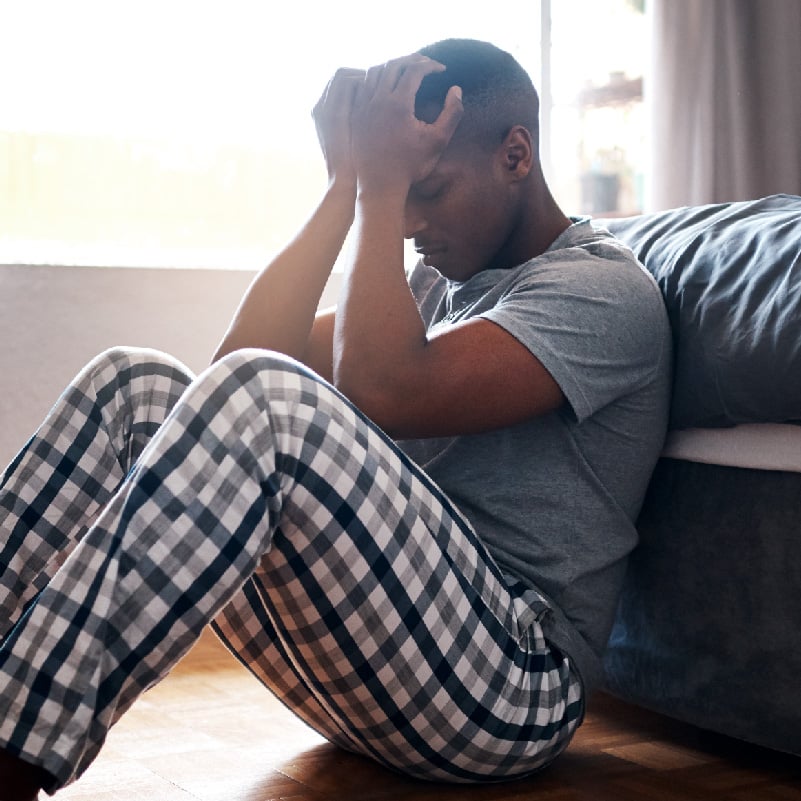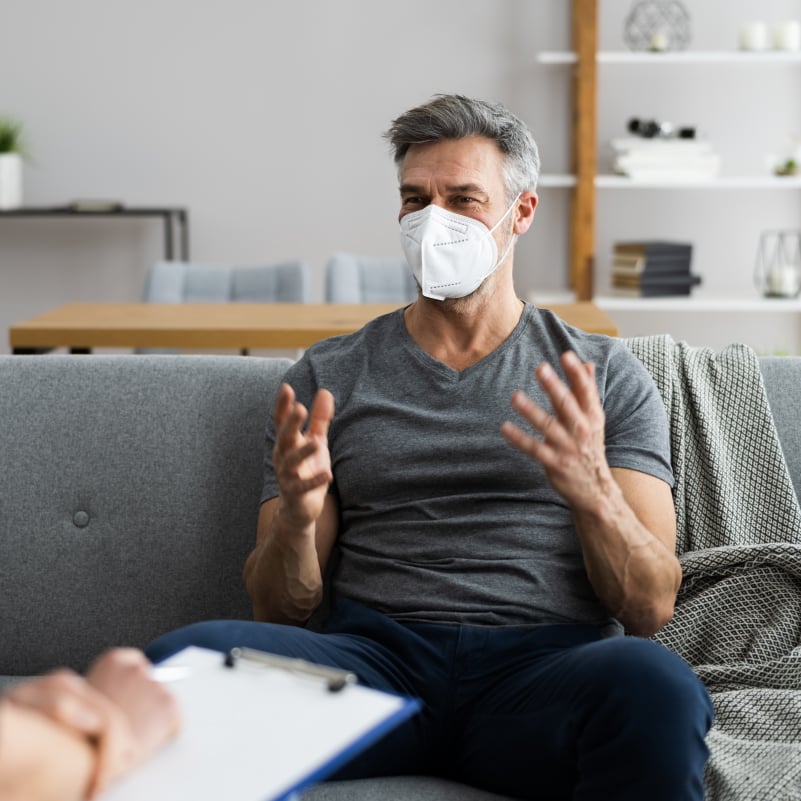One in five adults in the U.S. is living with a mental health condition, according to the National Institute of Mental Health. If someone needs to seek out treatment, there are several places they could go – which would give them different services and levels of support.
Within Rochester Regional Health, many services and supports are provided at our Behavioral Health Access and Crisis Center (BHACC).
Our behavioral health team explains how patients seeking mental health assistance or treatment can find what they need at BHACC, and share the help offered by providers in every situation.
Behavioral Health Access and Crisis Center
Anyone coming to the BHACC will have their needs met promptly in a non-hospital setting. Open daily from 9 am – 9 pm at 65 Genesee Street in Rochester, patients ages 18 and older are welcome to come in if they are experiencing:
- thoughts of self-harm or suicide
- interpersonal or family conflict
- increased symptoms related to a mental health diagnosis
- symptoms of depression or anxiety
- a lack of response from their mental health care provider
- basic substance abuse concerns
“Our real goal is to be an alternate destination to the emergency department,” said Melissa Shoemaker, Program Manager at the Behavioral Health Access and Crisis Center. “People might be waiting for long periods of time in an emergency department when they could be waiting for just a few minutes at BHACC.”
When a patient comes in through the doors of BHACC, they enter a quiet, calm environment that provides most of the same needs as an emergency department. Each person is greeted by a receptionist and asked to complete a small amount of paperwork before being seen almost immediately by a therapist.
No one will be denied treatment due to a lack of insurance. Staff will help patients with financial assistance or enrolling in Medicaid if eligible.
If a patient requires services in addition to the ones they are receiving through BHACC, providers will be able to get them the assistance they need at other locations and programs such as an emergency department or an outpatient mental health center.
Emergency Departments
Patients with mental health concerns that are affecting their immediate physical wellbeing should go to the emergency department. Some situations might include:
- Thoughts of physical self-harm or harm to others with an intention to act
- Substance use that affects a mental health disorder
Waiting times in emergency departments tend to be longer in comparison to waits in BHACC. Once a patient arrives in the emergency department, they will be seen by a provider. After assessing the patient, the provider will determine whether there might be a need for a psychiatric evaluation by ruling out whether the patient’s behaviors are stemming from a disorder or might be substance-induced.
“We treat people with very basic needs all the way up to those who have had a significant event and need not only psychiatric intervention but medical intervention, as well,” said Matthew Knope, LCSW, Manager of Emergency Psychiatric Services at Rochester General Hospital and Unity Hospital.
Outpatient therapy
Providers at BHACC may help a patient set up an appointment with a therapist or clinician at an outpatient location like Rochester Mental Health Center, Evelyn Brandon Health Center, Greece Mental Health Center, or Genesee Behavioral Health Center for ongoing treatment.
Specific services are available for adults, children, and adolescents, depending on the location. Rochester, Evelyn Brandon, Greece, and Genesee Mental Health Centers all serve adults; Genesee Mental Health Center serves both adults and children. Therapists treat people with a wide range of diagnoses, so patients can be assured they will receive the care they need. Patients are able to receive:
- individual or group therapy
- medication management (as approved by clinicians)
- care management
- health monitoring (smoking cessation, diabetes, nutrition)
Once a patient comes in, they meet with a therapist who will listen to their medical and family history, gather a complete psychosocial history, and perform a general assessment before determining what services they might need. A risk assessment and safety plan are also completed, in the event that a person is at high risk of self-harm or harm to others.
An evaluation period may last as long as 3 visits due to the extent of information needed from a therapist, in addition to the paperwork.
Collaborative effort
Each of these behavioral health services constantly works with the others to ensure patients are receiving the highest quality care that is right for them.
If a patient at BHACC is in need of immediate medical care, the team there will contact the emergency department and work with them to find a solution as quickly as possible. The same is true for patients who need to meet with a therapist at an outpatient behavioral health location. Providers are constantly communicating with one another and can ensure that the services needed by any patient are a single phone call away.
“Our teams have complex case reviews – meaning if one of our patients is having their case reviewed, we will bring in someone from another team to discuss the case, look at different approaches, suggest supplemental services, and other resources,” said Coleen Foster, LCSWR, MSHA, Program Manager of Adult Mental Health Services at Rochester Mental Health Center. “Other teams include other Rochester Regional Health service providers, leadership from Behavioral Health, representatives from other Rochester Regional services, and services & programs run through Monroe County. We are proud to collaborate with all of these teams in this unique way.”
“We have a high level of collaboration between the emergency department, BHACC and outpatient treatment centers,” Knope said. “We want to meet patients where they are at and will always try to connect them to the right service so we can work together to find the root cause of their admission.”









